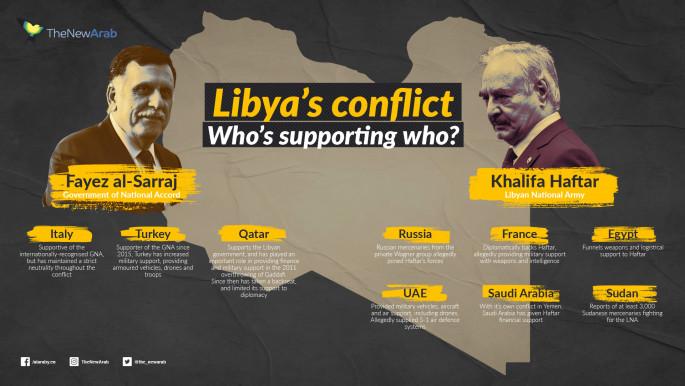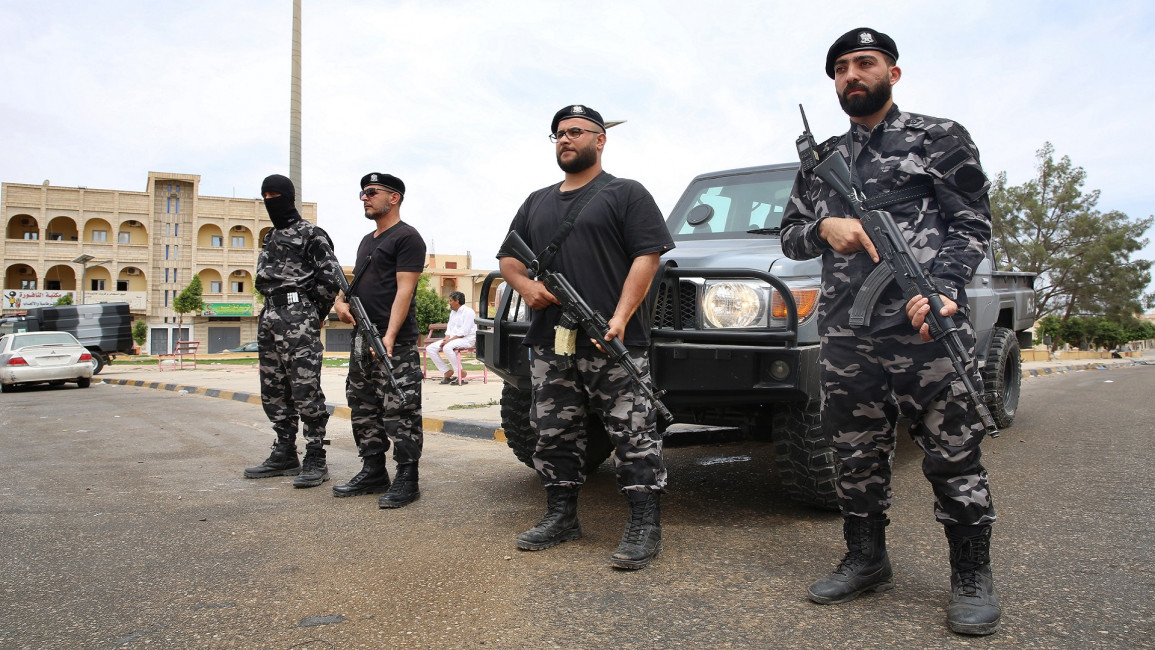US rejects Egyptian proposal for ceasefire in Libya amid Haftar retreat
The United States called on Thursday for a UN-led ceasefire on Libya, distancing itself from a proposal by Egypt, and voiced alarm about the toll on civilians as the tide of war turns.
Egypt - a main backer of rogue General Khalifa Haftar, who is losing ground to the UN-recognized, Turkish-backed government - has proposed a truce in which "foreign mercenaries" would leave and militias would disband and disarm.
David Schenker, the top US diplomat for the Middle East, voiced appreciation to Egypt, saying it was "productive to have more unity in Libya."
"That said, we think that the UN-led process and the Berlin process are really the framework - the most productive framework - to engage in negotiations to make progress on a ceasefire," he told reporters.
Read more: In the face of defeat, Haftar and his backers make a transparent bid for peace
Germany in January brought together key stakeholders in Berlin in a conference aimed at ending the bloodshed and stabilizing Libya, a major gateway for migrants to Europe.
Both Turkey and the UN-recognized Government of National Accord have voiced skepticism about the Egyptian initiative, seeing it as a way to buy time as Haftar loses ground.
The UN mission to Libya on Thursday voiced "horror" at reports of at least eight mass graves in areas from which Haftar’s militias have retreated.
Schenker called the accounts of mass graves "truly disturbing". It also warned that a government advance on Sirte, a remaining Haftar stronghold, "could have serious humanitarian consequences."
He urged both sides to "protect civilians and prevent further damage to infrastructure," including schools, water supplies and oil facilities.
"We continue to call for de-escalation, a ceasefire, a return to political negotiation," he said.
"Now is a time for Libyans on all sides to act so neither Russia, nor any other country, can interfere in Libya."
Mercenaries sent by Russia have assisted Haftar, according to a UN report. The rogue general, who launched a deadly assault on Tripoli in 2019, is also backed by the United Arab Emirates and Saudi Arabia, which have close relations with US President Donald Trump.
The United States recognizes only the UN-backed government, but Trump caused confusion last year by praising Haftar after a telephone conversation with him.

Follow us on Facebook, Twitter and Instagram to stay connected



